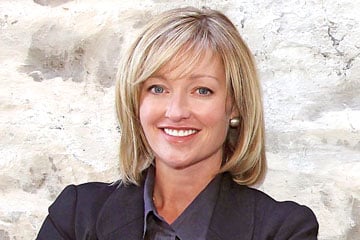
Lawyers who represent plaintiffs in smaller personal injury firms say they are turning to specialized litigation financing to fund disbursements and expert witnesses, as well as other expenses.

Lawyers who represent plaintiffs in smaller personal injury firms say they are turning to specialized litigation financing to fund disbursements and expert witnesses, as well as other expenses. Lawyers point to financial challenges they say they are increasingly confronting within the personal injury practice.
Plaintiff-side lawyers say the costs for disbursements have increased significantly in the past decade.
Trial delays are also increasing as criminal trials are getting precedence following Jordan, say lawyers, which means personal injury litigation is falling to the back of the queue.
Lastly, plaintiff-side lawyers say changes to the Ontario Insurance Act means the deductible for general damages in automobile accidents is increasing every year, meaning it’s tougher for people injured in collisions to recover general damages from motor vehicle accidents than any other type of injury case.
Heidi Bergeron says that, recently, for the first time in her eight years as a sole practitioner doing plaintiff-side work on personal injury matters, she has begun using various products to “stay on a level playing field” with the defence.
“Files are not settling like they used to, the costs of reports have gone up — there’s just a lot of pressure mounting financially for plaintiffs,” says Bergeron, who is based in Kingston, Ont.
“It’s changed the climate and how we practise as a result.”
Under the Insurance Act, the non-pecuniary loss deductible for general damages in automobile accidents increases every year. It is currently set at $37,983.33, according to the Financial Services Commission of Ontario.
For general damages awards below the monetary threshold of $126,610.07, the deductible applies. The threshold also increases every year, as set out in s. 267.5 (8.3) of the Insurance Act.
Jasmine Daya, managing principal of Jasmine Daya & Co. in Toronto, who does plaintiff-side work, says the increasing thresholds make it more difficult to recover damages without a deductible, and when there is a deductible, it’s now higher.
“It erodes what is left for the accident victim, which in turn impacts personal injury firms because we’re on contingency fee arrangements,” says Daya. “So, not only is the accident victim getting less, but our fees are less as a result.”
Jwan Desai of Desai Law in Toronto, who acts for plaintiffs in personal injury cases, says that, in her experience, insurance companies would rather deter future claims at all costs than assess the merits of individual claims.
“Given the specific changes in our area of insurance litigation and personal injury litigation [that benefits insurance companies], there’s an imbalance and it’s an access to justice issue,” says Desai.
She says the current legislation has emboldened insurance companies to put in a policy approach to “bulldoze claims” and that there needs to be something to even out the playing field.
Daya says some insurers are now using a “defensible approach” that sees them refusing to pay plaintiffs who suffer soft tissue damage or psychological issues as a result of an accident. She says the approach by these companies has moved beyond motor vehicle accidents and is now moving toward slip-and-fall cases.
“Insurance companies have lots of money. Plaintiffs’ lawyers don’t have as much as insurance companies, so they will drive the files harder and longer. Meanwhile, we have to carry the disbursements,” says Daya.
“You have a lot of changes in the [Insurance Act] and the benefits that are available to injured individuals,” says Desai.
“Unfortunately, it’s the injured party that’s facing these thresholds, but it’s not just the legislation — it’s this [defensible approach] policy that insurance companies have taken that is driving up the cost of litigation.”
Daya says that, on a contingency-fee basis, plaintiff-side lawyers carry the costs of litigation.
It can take years to get a trial date in Toronto courts, she says, which means lawyers are forced to pay experts a second time for updated reports.
“If you can turn to litigation funding, that is helpful,” says Daya. “Banks have become very difficult.”
Bergeron says she has begun using disbursement insurance and would recommend it on her files.
It is part of cost protection insurance, which gives plaintiffs more confidence to build their file throughout the process.
Bergeron says she has signed on with companies that retain experts and allow for a deferred payment plan through the service. She says she uses these companies for the benefit of the deferred payments.
Richard Nishimura, managing partner of Menzies Lawyers in Ottawa, says the rising costs of disbursements essentially boils down to an access to justice issue.
Nishimura says that larger firms have a better ability to absorb those costs and act like a bank for disbursements, and as costs increase, it makes it increasingly difficult for personal injury firms to sustain that, which is why alternate forms of financing enable litigation that may not otherwise be able to proceed.
“These people have a viable claim in terms of the existence of negligence, but if they can’t afford to get an expert and they can’t afford to fund the disbursements, it’s difficult in particular for the smaller firms,” says Nishimura.
Editor's note: Article updated on July 24, 2018 to correct information regarding the deductible for general damages awards below the monetary threshold.